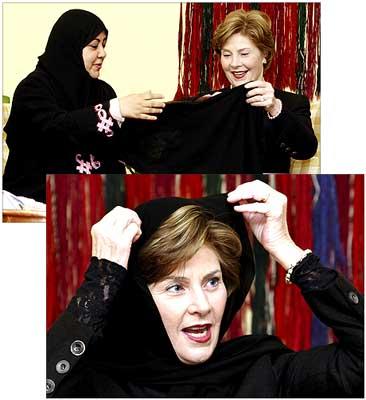Phillips on Barack Obama
I notice a lot of people are visiting this site by searching for information about Barack Obama. You might therefore be interested in a piece in the Spectator by Melanie Phillips entitled Princess Obama. Here are the central paragraphs:
Welcome to Planet Diana. It was only with the death of the People’s Princess that the extent of Britain’s transformation from a country of reason, intelligence, stoicism, self-restraint and responsibility into a land of credulousness, emotional incontinence, sentimentality, irresponsibility and self-obsession became shatteringly apparent. Princess Diana was an icon of the new Britain because she embodied precisely those latter characteristics.
It became clear that politicians could score remarkable short-term success if they too got in touch with their inner trauma and felt everyone else’s pain. Bill Clinton (hideous irony for Hillary) was the first to realise this and made it his political signature. Tony Blair, whose lip periodically quivered with precision timing, had it in spades. David Cameron has it; so too does Obama.
The effect is electric, but short-lived. That is because Dianafication is essentially empty, amoral, untruthful and manipulative; eventually voters see through it and realise they have been played for suckers. But while it lasts -- and it creates presidents and prime ministers -- reason doesn’t get a look in. Warm fuzzy feelings win hands down because they anaesthetise reality and blank out altogether those difficult issues which require difficult decisions. Obama appears to be on the wrong side of just about every important issue going; indeed, were he to be elected president he would be a danger to the free world. But hey – the guy makes people feel good about themselves; he stands for hope, love, reconciliation, youthfulness and fairies at the bottom of the garden.
![President Mahmoud Ahmadinejad at Iran's nuclear enrichment plant [Credit: Washington Post]](https://blogger.googleusercontent.com/img/b/R29vZ2xl/AVvXsEhfHdhP-d7u9Vm0MmBr1Bo_Ft6n50DmTJHe4nvRzYQD07Hx70bxXaEKwsdpraA1dTmmsIZ4jIiK860hPAMcS1DVThejFsGa4PxeXmGPaKZWEiop4MYI-84KmMY_or6rQUeBApftg8lpkiY-/s400/Irannuclear.JPG)


![South Korean President Roh Moo-hyun, left, toasts with North Korean leader Kim Jong Il after declaring a joint reconciliation pact [Credit: Spiegel Online]](http://www.spiegel.de/img/0,1020,984658,00.jpg)

 "Would Columbia [University in New York] ever invite a white supremacist, or an evolutionary creationist, or an advocate of the murder of abortion doctors to speak on campus, counting on the power of dialogue to counter offensive and even odious ideas? Clearly it wouldn't."
"Would Columbia [University in New York] ever invite a white supremacist, or an evolutionary creationist, or an advocate of the murder of abortion doctors to speak on campus, counting on the power of dialogue to counter offensive and even odious ideas? Clearly it wouldn't."![Rudy Giuliani meeting Gordon Brown [Credit: ABC News]](http://www.abcnews.go.com/images/Politics/abc_giuliani_brown_070919_me.jpg)
![President Bush welcomes British Prime Minister Gordon Brown to the presidential retreat at Camp David [Credit: TimesUnion.com]](https://blogger.googleusercontent.com/img/b/R29vZ2xl/AVvXsEgL3s-li-4iK4i-z7ARCT_K1etU6BUWTAGfaXYVs0EoolPJdrx9ekWErJnTeD-QLUkLGfE-EXVF7g2nLnko3lFCVbbbPSzL8U3v9BHOD-Gt2Ub3ke9bU_UhYn7-K5i9Z3B-o-7caOkU9_Ni/s400/Bush-Brown.jpg)


 Three deals were on the table today:
Three deals were on the table today: The chairman of the disreputable United Nations Human Rights Council has today presented its members with a "take-it-or-leave-it" ultimatum on a proposed new set of rules for how it will operate.
The chairman of the disreputable United Nations Human Rights Council has today presented its members with a "take-it-or-leave-it" ultimatum on a proposed new set of rules for how it will operate.
